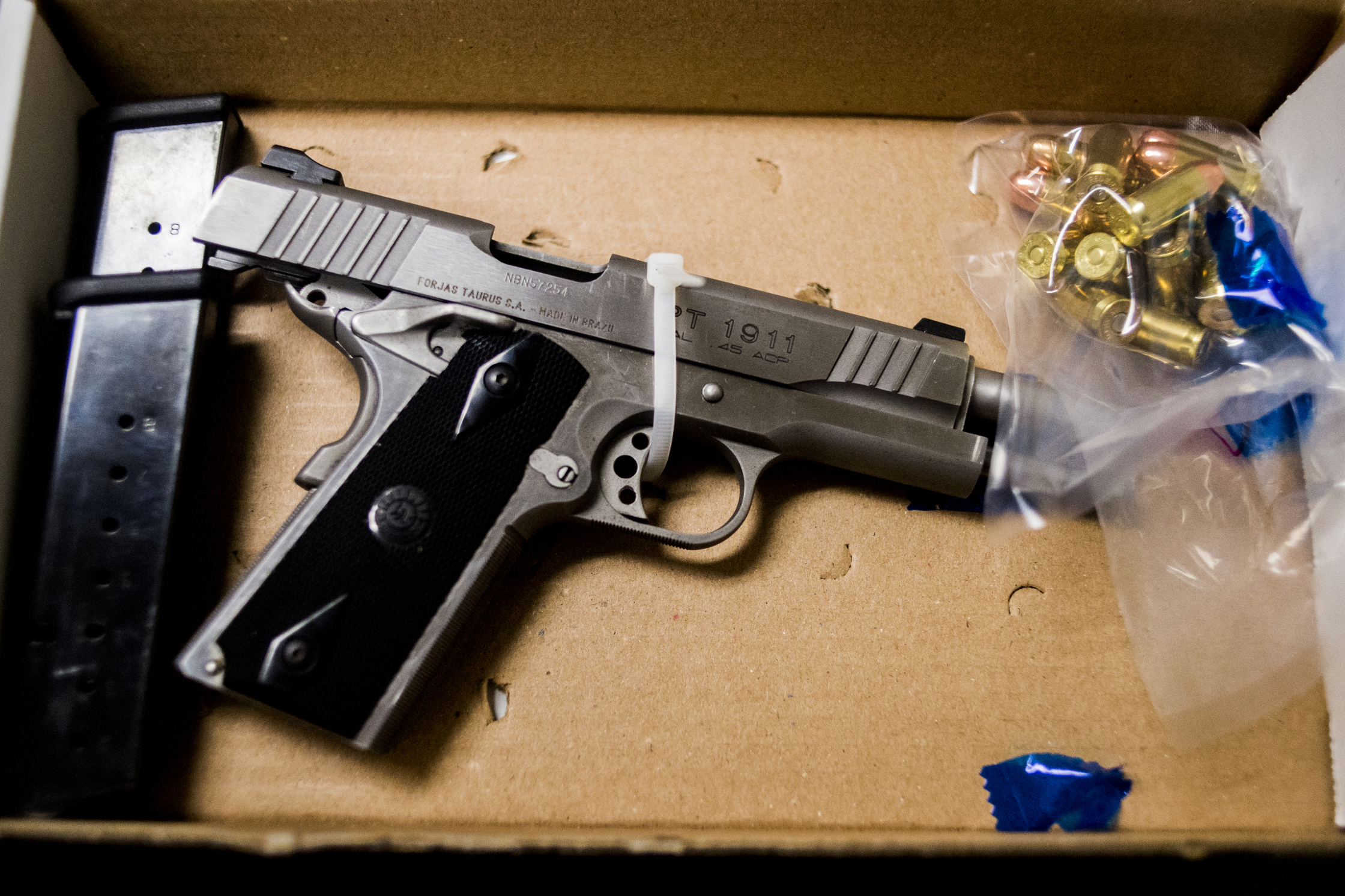What To Know Today
Most Californians support seizing guns temporarily from dangerous people, but many still don’t know there’s a law for that. The state’s policy — locally known as a gun violence restraining order — allows someone to petition a court to temporarily remove firearms from a person deemed a threat. But 66 percent of Californians polled last July said they’d never heard of a GVRO or red flag law, according to a new survey by the Firearm Violence Research Center and Violence Prevention Research Program at UC Davis. After reading a description of the state law, about three-quarters said a GVRO was at least sometimes appropriate, and more than 80 percent said they would be somewhat or very willing to petition a judge if a family member threatened themselves or others. A majority of respondents who identified as gun owners would consider pursuing a GVRO, ranging from 70 to 86 percent depending on the proposed risk scenario. The most common reason cited for being unwilling to ask a judge for a GVRO was insufficient knowledge about the law. Said lead author Nicole Kravitz-Wirtz: “Our findings are consistent with national studies indicating that many firearm violence prevention policies have widespread public support and that general consensus exists between firearm owners and non-owners.”
Federal judge rules California’s assault weapons ban unconstitutional. U.S. District Court Judge Roger T. Benitez said the law, launched in 1989, was “a failed experiment.” In his opinion, he compared assault weapons like the AR-15 to knives, which he asserts are much more likely to be used for violence: “Like the Swiss Army Knife, the popular AR-15 rifle is a perfect combination of home defense weapon and homeland defense equipment.” Governor Gavin Newsom blasted the decision as “a direct threat to public safety and the lives of innocent Californians.” The judge granted Attorney General Rob Bonta’s request for a 30-day stay to allow for an appeal, which Bonta pledged to file. Benitez, a George W. Bush appointee, has ruled against several of the state’s strict gun regulations, though California has found a receptive ear on the Ninth Circuit Court of Appeals.
NRA drops federal suit against New York AG’s office. The National Rifle Association announced it was voluntarily dismissing its counterclaims against the dissolution suit brought by Attorney General Letitia James. The group argued in federal court that James’s suit was politically motivated, but will now opt to challenge the ongoing legal case in state court where it was brought. In a statement, James said the move was an “implicit admission that their strategy would never prevail.” The move comes weeks after a bankruptcy court judge dismissed the gun group’s Chapter 11 filing, saying it was not a good-faith attempt and improperly sought a legal advantage over James by trying to relocate from New York to Texas. What comes next? The Trace’s Will Van Sant notes: “[James’s] office has 20 days to respond to the gun group’s counterclaims, which mirror those in its dropped federal case.”
An abuser under a protective order lost his gun. Nine months later, law enforcement gave it back — and he fatally shot his wife. Women are five times more likely to be killed when their abuser has access to a gun. But as my colleague Ann Givens has reported, states and localities regularly fail to ensure that people under protective orders actually lose their guns, as is required by federal law and statutes in 29 states. In a must-read investigation, NBC News looks at the harrowing case of Megan Montgomery in Alabama, who was killed by her husband, a former police officer, less than three weeks after a state agent returned his gun. “So the restraining order can prohibit him from ‘contacting, phoning, texting, harassing, stalking,’ but oh by the way, you can have a gun? That’s ridiculous,” said Megan’s mother.
Another mass shooting sparks fear and frustration in Miami. Three people died and at least five others were injured after people in several cars exchanged gunfire outside a graduation party at a bar near Miami-Dade College’s Kendall campus on Sunday. Details about the incident are still sparse, but one of the dead was identified as Tyleisha Taylor, a 20-year-old corrections officer. The incident comes a week after a separate shooting in the Miami-Dade area left three people dead and more than 20 injured outside a concert. “This type of gun violence has to stop,” said the Miami-Dade police director. “Every weekend it is the same thing.”
Data Point
40 percent — the share of nearly 68,000 New York Times readers who correctly answered a question about whether the murder rate in America last year was lower than in 1990. [The New York Times]

